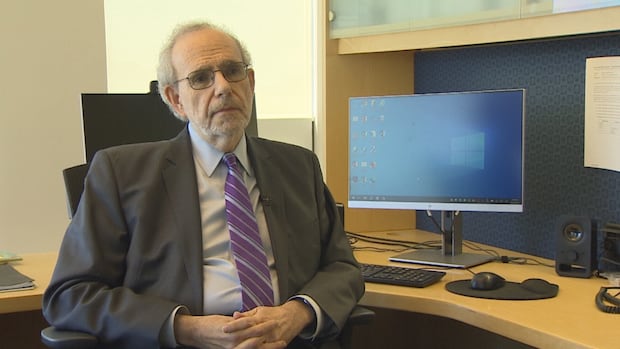PEIPrince Edward Island’s new Child, Youth and Family Services Act has strengthened protections for children and youth, but there are still gaps that need to be addressed, says the province’s Child and Youth Advocate.A dedicated section about the rights of children and youth in care is an important change, says child advocateWhat has and hasn’t been accomplished as the P.E.I. Child, Youth and Family Services Act turns oneAdvocates on P.E.I. say a lot of good has come out of the province’s new Child, Youth and Family Services Act. When it was enacted a year ago, it was described as historic, progressive and groundbreaking. As CBC’s Taylor O’Brien reports, some say progress has been made, but there is still more work to be done. Prince Edward Island’s new Child, Youth and Family Services Act has strengthened protections for children and youth, but there are still gaps that need to be addressed, says the province’s child and youth advocate.The legislation, which came into effect in September last year, replaced the more than 20-year-old Child Protection Act. Years in the making, it was developed by the Department of Social Development and Seniors with input from Marvin Bernstein, the province’s child and youth advocate.Bernstein said one of the most important improvements is that the act includes a dedicated section on the rights of children and youth in care, something missing from the old law.”The approach in the past has been, ‘Just leave it to the adults. The adults will figure everything out. We don’t really need to hear the views of children that are impacted by the services,'” Bernstein told CBC News.”We often say within the office, they’re experts when it comes to their own lived experience. While they’re not the decision makers, their views are important to consider, to inform the decisions that are being made by service providers. Having good legislation is an important foundation.”Marvin Bernstein, P.E.I.’s child and youth advocate, says one of the most important improvements is that the act includes a dedicated section on the rights of children and youth in care, something missing from the old law. (Kirk Pennell/CBC)Some of the key updates in the legislation include: Clarity on the legal status of children in the care of grandparents or other alternate care providers. A change to let the department provide services to youth in care until they’re 25 years old, instead of them “aging out” at 21. New “alternative pathways” for courts to address child safety concerns. Limits on how long a child can be in the temporary care of the province’s director of child protection. Bernstein said the act also created a framework for collaborative processes, such as family group conferencing and child protection mediation. These approaches bring extended families together to create safe plans for children.”We’ve had some advocacy representation of children involved in that process. From our perspective, that is a positive development,” Bernstein said. “What we would like to see is more referrals to our office, and more outreach to children and youth in care to let them know they can have support from an advocacy representative.”Despite these steps, Bernstein said a major gap remains: There is no clear, child-friendly way for children to make complaints about their care.He said there needs to be a complaints resolution process that is child-friendly, accessible and transparent, with clear information about how children can raise concerns.He also recommended the creation of a standing legislature committee to review the act every five years, with youth playing a meaningful role in the process.Challenges for grandparentsBernstein said grandparents acting as caregivers continue to face frustrations, particularly around autonomy and compensation.He said some have expressed difficulties with tasks as simple as travelling with their grandchildren, or arranging medical and dental appointments, without having to seek extra approvals.”I think they’re feeling frustrated. They’re feeling as though they’re second-class citizens, that their voice doesn’t matter,” he said. “What was coming across is that they feel at times unappreciated, and they feel as though too many questions are being asked, too many check-ins, feeling as though somehow foster parents are better supported.”Donald Avery, the president and founder of Building GRAND-Families Inc., said grandparents aren’t given the support they need.Donald Avery, the president and founder of Building GRAND-Families, says he used most of his retirement money to raise his great-granddaughter for five years, before she went back to her biological father. (Zoom)”Never enough, never enough. You have to remember that most of these grandparents retired, and they’re faced with a choice of either bringing these children into their home or putting them into foster care,” he said.”And we believe — or I guess even government believes — that children should be in [with] family. They should always be with family, and again that comes back to the best interest of the child.”Avery said finances were a challenge for him when he was raising his great-granddaughter from just eight months to the age of five, when she went to live with her biological father. That was five years ago.”It was a big financial burden,” he said. “[It] took most of my retirement income that I had worked all my life for and it was costly, but I don’t regret what I did.”Avery said taking care of young children can be mentally taxing on caregivers as well.He said Building GRAND-Families has supports for grandparents, such as psychotherapy, equine learning and other mental well-being activities.Another issue grandparents face when raising grandchildren is the amount of money they receive monthly from the province to support them.If you compare how much money foster parents and grandparents get from the province, foster care parents get more. However, grandparents also get the monthly Child Tax Benefit from the federal government; foster parents don’t.In total, if a grandparent is taking care of a child from birth to 10 years old, the grandparent gets more money than a foster parent when you include the benefit. But if a grandparent is taking care of a child who is 11 to 17 years old, the foster parent gets more money than the grandparent, even when the child tax benefit is factored in. Government responseMike Henthorn, the province’s director of child protection, said the department has seen progress under the new law, especially for youth aging out of care. The new legislation has expanded support from the age of 21 all the way up to 25.Mike Henthorn, the director of child protection for Prince Edward Island, says his department is working on a new website to ensure caregivers are aware of policies and resources. (Jane Robertson/CBC)”Over the past year, our numbers have grown from under 10 to well over 40,” he said.”We have seen our graduation-of-high-school rates increase. We see more youth than ever before accessing our services. And we know that more support equals better outcomes for these young people.”On the issue of grandparents, Henthorn said each one has a dedicated social worker for direct communication. The department is also working on a new website to ensure caregivers are aware of policies and resources.”We know that the permanency of children is critically important, so we’re working with each grandparent to resolve custody and guardianship challenges they face,” he said.Looking ahead, the department plans to launch a public campaign this fall to recruit more foster parents. Currently, P.E.I. has about 80 foster parents, and officials say more are needed.With files from Taylor O’Brien
P.E.I.’s new child protection law making progress but more work needed, says child advocate











